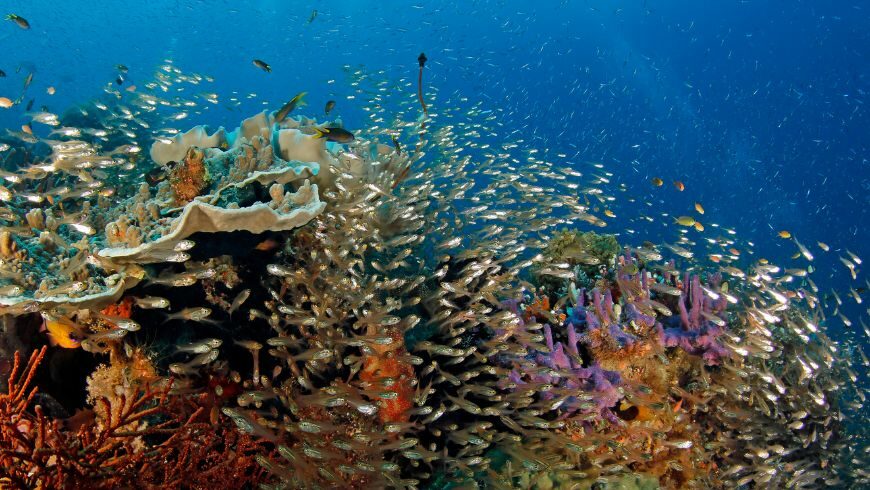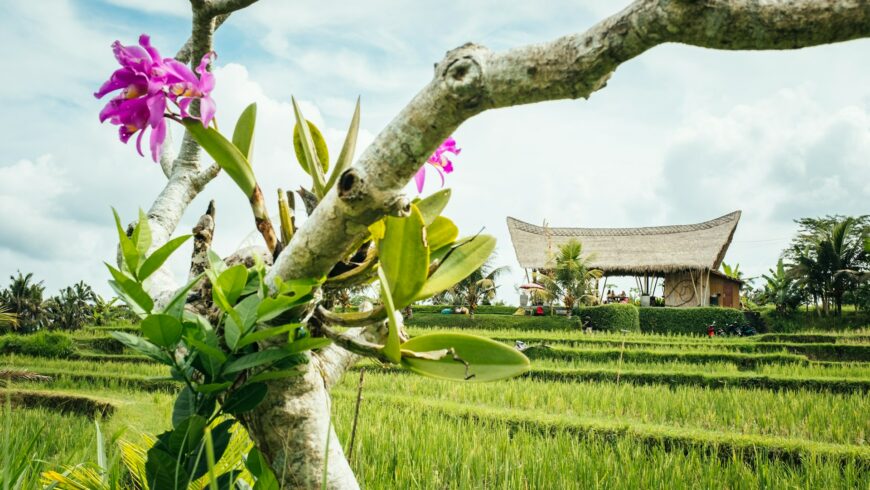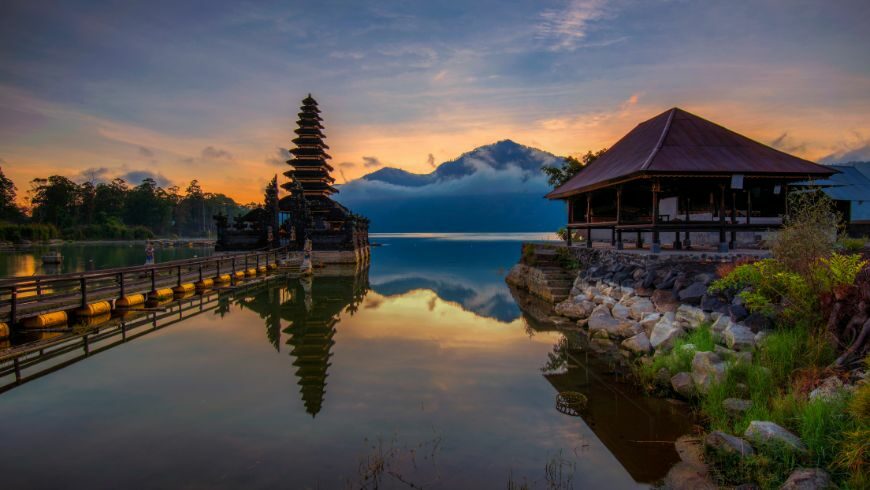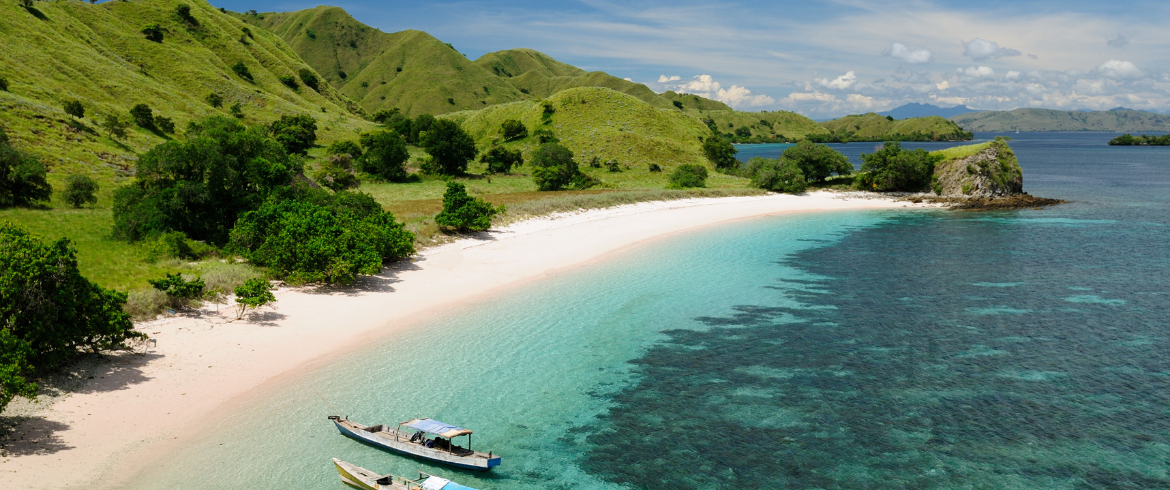Indonesia has a captivating blend of abundant culture, stunning scenery, and a wide variety of species. Indonesia is a traveler’s dream, offering everything from the well-known beaches of Bali to the untamed peaks of Lombok and the coral-rich reefs of Raja Ampat.
There is a duty associated with this beauty, though. Indonesia must contend with mounting environmental concerns while maintaining its natural treasures and cultural legacy in the face of growing tourism. Sustainable travel is crucial for preserving the harmony between visiting and safeguarding these amazing places for future generations.
Support Local Businesses

One of the best ways to cruise Indonesia sustainably is to ensure money benefits the local economy. Whenever possible, buy products from local artisans, dine at locally-owned restaurants, and hire local guides. In Indonesia, this could mean purchasing handcrafted batik textiles, eating at warungs (small family-owned eateries), or participating in traditional craft workshops.
By supporting local businesses, people can help sustain livelihoods and preserve cultural traditions. Additionally, locally produced goods typically have a lower environmental impact, as they don’t require long-distance transportation.
Respect Wildlife and Marine Life
Indonesia’s islands are home to extraordinary biodiversity, from orangutans in Sumatra to the coral reefs of Raja Ampat. However, human activities, including tourism, are increasingly threatening these ecosystems. If you plan to explore Indonesia’s marine life through activities like diving or snorkeling, you must choose responsible operators that follow sustainable practices.
For example, never touch coral reefs or marine animals, and avoid using sunscreens that contain harmful chemicals like oxybenzone, which can damage coral ecosystems. When trekking in Indonesia’s jungles or nature reserves, maintain a safe distance from wildlife and avoid feeding or disturbing animals in their natural habitats.

Slow Down and Stay Longer
One of the best ways to travel sustainably is to slow down and stay longer in one place. Rather than hopping from island to island or packing an itinerary with multiple stops in a short period, consider immersing in one destination. Spend time getting to know the local people, culture, and environment.
When people take a slower approach to travel, they reduce their carbon footprint by cutting down on transportation between islands, often by plane or boat. They’ll also have the chance to form deeper connections with local communities and discover hidden gems that can’t be rushed through in a few days.
Choose Sustainable Accommodations

Indonesia offers a growing number of eco-friendly accommodations that prioritize sustainability. From eco-resorts that use renewable energy and minimize water consumption to small guesthouses operated by local families, staying at these types of lodgings can significantly reduce environmental impact. Look for accommodations with recognized sustainability certifications (e.g., Green Key, Green Globe or EarthCheck), which ensure that these lodgings meet rigorous standards for reducing their ecological footprint. This can help avoid “greenwashing” practices, where lodgings appear eco-friendly but don’t meet true environmental standards.
Use Public or Eco-Friendly Transportation
Indonesia’s vast archipelago often requires flying between islands, but once on land, consider more sustainable modes of transport. Opt for public transportation such as buses or ferries, which are more eco-friendly than taxis or private cars. In Bali, for example, one can rent bicycles to explore quieter areas or use electric scooters, which are becoming increasingly popular.
When possible, use trains, particularly in Java, where the train network is well-developed and scenic routes allow travelers to see the countryside. Walking or cycling around town is another great way to reduce their carbon footprint while enjoying the local scenery at a slower pace.

Get Off the Beaten Path
Indonesia’s most popular destinations – Bali, Lombok, and the Gili Islands – often experience overtourism, leading to crowded beaches, strained infrastructure, and environmental degradation.
Instead of following the tourist trail, explore less frequented islands like Flores, Sulawesi, or Sumbawa. These areas offer incredible landscapes, authentic cultural experiences, and a chance to interact with local communities without contributing to the pressures of mass tourism.
By visiting lesser-known destinations, visitors help distribute the economic benefits of tourism to different regions, allowing smaller communities to thrive. Plus, they’ll enjoy a more intimate experience and avoid the crowds of tourists common in more popular spots.
Conserve Water and Energy
Tourist-heavy destinations in Indonesia, especially small islands, often face water shortages and energy constraints. As a responsible traveler, one should consider their water and energy usage. Visitors can take shorter showers, reuse towels, and turn off air conditioning, lights, and electronics when they leave their rooms.
Small islands often rely on desalination for their freshwater supply, which is energy-intensive, and electricity is frequently generated from fossil fuels. By minimizing consumption, people can help alleviate the strain on local resources and the sustainability of these fragile ecosystems.
Reduce Plastic Waste
Indonesia has been grappling with plastic pollution, particularly in its oceans and on its beaches. As a traveler, one can contribute to reducing this problem by avoiding single-use plastics. Carry a metal or glass water bottle, especially in places where they can refill it with filtered water. Many hotels and restaurants now offer refill stations to help combat plastic waste.
Bring a reusable shopping bag, refuse plastic straws, and opt for bamboo or metal utensils instead of disposable ones. Indonesia’s beautiful landscapes and marine environments are worth protecting, and small actions like reducing plastic consumption can have a significant impact.
Think About Cultural Sensitivities

Indonesia is incredibly diverse, with over 300 ethnic groups and numerous religious traditions, particularly Islam, Hinduism, and Christianity. Respecting local customs and traditions is important, especially when visiting sacred sites like temples and mosques.
Dress modestly, particularly in conservative areas such as Lombok or Aceh. When visiting temples in Bali, wear a sarong and follow any specific guidelines about behavior and photography. Learning a few basic phrases in Bahasa Indonesia can go a long way in showing respect and appreciation for the local culture.
Offset Carbon Footprint
Despite people’s best efforts, some level of environmental impact is unavoidable when traveling, particularly when flying between islands. One can mitigate this by purchasing carbon offsets, which contribute to projects that reduce greenhouse gas emissions, such as renewable energy initiatives or replanting. However, keep in mind that offsets only partially compensate for the environmental footprint of flights. Consider alternatives, like ferries or trains where possible, to minimize the overall impact.
Several companies allow travelers to calculate their trip’s carbon emissions and purchase offsets that support environmental projects. While carbon offsetting doesn’t eliminate the emissions from a trip, it helps balance out the environmental footprint and supports efforts to combat climate change.
Final Thoughts on Sustainable Travel in Indonesia
Traveling sustainably in Indonesia means making conscious choices that benefit the environment, support local communities, and preserve the country’s incredible cultural heritage. By following these tips – exploring less crowded destinations, supporting local businesses, conserving water and energy, and respecting wildlife – one can have a memorable and meaningful trip while minimizing their environmental impact.




